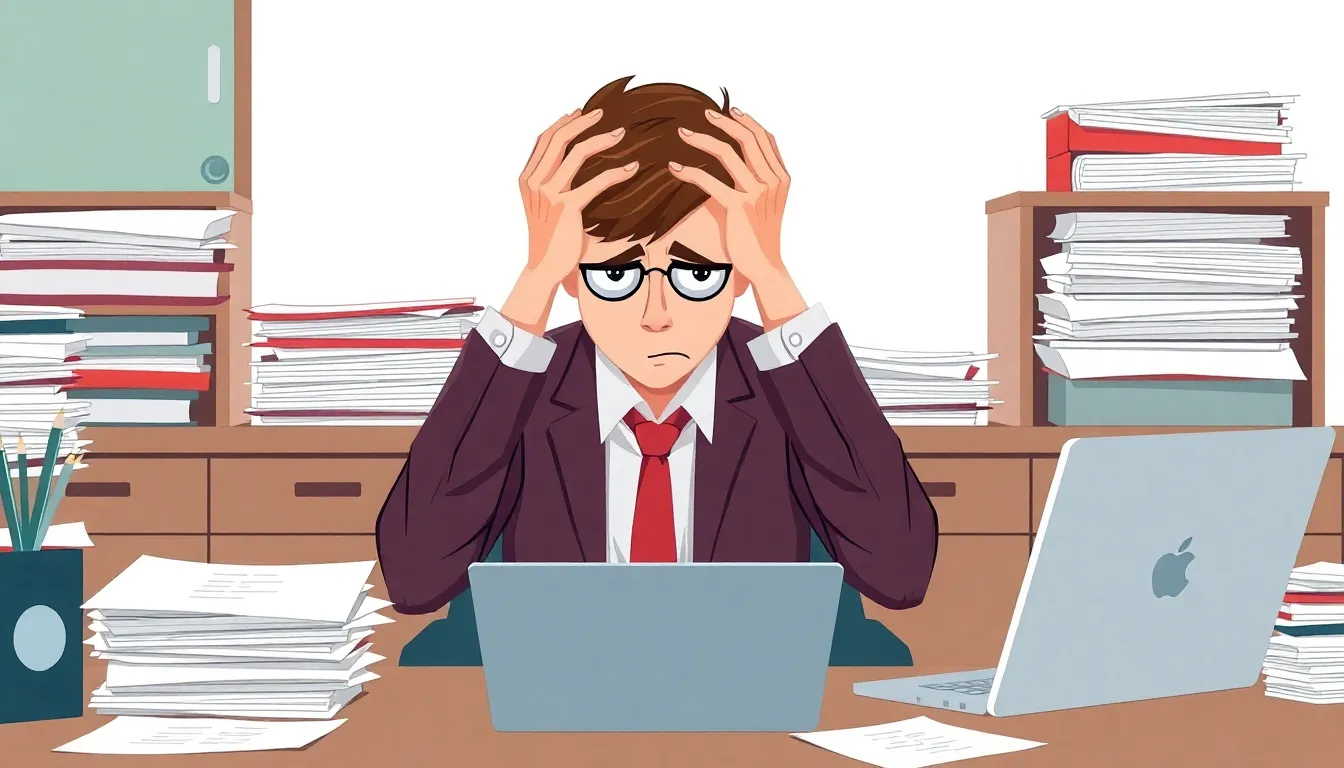In a world where the grind never stops and sleep is for the weak, hustle culture has become the badge of honor for many. But what happens when the relentless pursuit of success turns into a toxic treadmill? It’s time to take a step back and question whether the hustle is really worth the mental and physical toll.
Imagine waking up every day feeling like a hamster on a wheel, sprinting toward an elusive finish line that keeps moving further away. Sounds exhausting, right? The glorification of overwork and burnout not only robs individuals of joy but also stifles creativity and personal growth. It’s high time to challenge the notion that more hours equal more success and embrace a healthier, more balanced approach to life. After all, who wants to be a stressed-out zombie chasing after an unattainable ideal?
Table of Contents
ToggleUnderstanding Hustle Culture
Hustle culture promotes relentless work in the pursuit of success, often disregarding mental and physical well-being. This mindset prioritizes productivity over health, creating an unsustainable lifestyle.
Definition of Hustle Culture
Hustle culture defines a mindset where constant effort and long hours equate to success. It glorifies being busy as a badge of honor, often leading individuals to equate self-worth with productivity. Many embrace this culture to achieve financial independence or professional accolades. Values such as ambition and perseverance often overshadow the need for balance and self-care. The societal narrative encourages individuals to believe that sacrificing personal time ensures achievement, neglecting the negative impacts of such a lifestyle.
Historical Context
Historically, hustle culture stems from the American Dream ethos, especially post-Industrial Revolution. The idea of hard work leading to success resonated with many as societal values shifted towards capitalism. The 1980s introduced “workaholism” as corporate culture glorified long hours and dedication. The rise of technology in the 2000s accelerated this culture, promoting constant connectivity and an expectation of availability. Shifts in workplace dynamics during economic downturns further entrenched the belief that busyness correlates with job security. This context contributes to today’s intense focus on achievement, making it crucial to understand its origins and implications.
The Impact of Hustle Culture

Hustle culture affects individuals’ mental and physical well-being. It promotes a relentless drive for success that often leads to detrimental outcomes.
Mental Health Consequences
Stress, anxiety, and burnout represent significant mental health issues arising from hustle culture. Exhaustion from long hours can lead to emotional fatigue and decreased motivation. Individuals may feel overwhelmed, causing a decline in overall mental wellness. Studies have shown that heightened work pressure correlates with increased rates of depression. Long-term adherence to hustle culture norms can tip the balance between ambition and detrimental mental health effects.
Effects on Work-Life Balance
Hustle culture disrupts work-life balance, blurring the lines between personal time and work obligations. Continuous connectivity due to technology creates an expectation of constant availability. Individuals struggle to disconnect, often sacrificing personal relationships and hobbies. Productivity becomes synonymous with busyness, overshadowing the need for downtime. The inability to prioritize self-care compromises overall quality of life. Successful management of one’s time requires redefining priorities beyond work output.
Reasons Why Hustle Culture Is Toxic
Hustle culture promotes unrealistic expectations that impact individuals’ lives negatively. Many people believe they must work excessively to succeed, creating unattainable benchmarks for themselves. This mindset fosters a sense of inadequacy, as individuals often compare themselves to high achievers who seem to have it all. Social media exacerbates this issue by showcasing curated lifestyles and constant productivity. Instead of celebrating balance, followers see people glorifying overwork, reinforcing the idea that long hours equate to success. Such pressure can lead to a chronic state of dissatisfaction, where personal achievements feel insufficient.
Fear of failure and burnout becomes prevalent in hustle culture. Individuals pressured to maintain high productivity levels often experience anxiety about their work performance. The continuous demand for output makes it challenging to take breaks, leading to physical and emotional exhaustion. Statistics indicate that approximately 76% of professionals report feeling burned out at work. This fear subsequently prevents people from taking necessary time off, creating a cycle that perpetuates overwork. Researchers link this extreme pressure to increased rates of mental health issues, including depression and anxiety. Reassessing priorities with an emphasis on self-care and balance becomes crucial for well-being in this demanding environment.
Alternatives to Hustle Culture
A healthier approach to work promotes fulfillment over constant busyness. Embracing work-life integration provides individuals with flexibility to enhance productivity while nurturing personal lives.
Embracing Work-Life Integration
Work-life integration allows individuals to blend work responsibilities with personal interests. Instead of rigid boundaries, this approach fosters a seamless flow between professional and personal commitments, promoting satisfaction in both areas. Setting flexible hours enables people to choose when to tackle tasks, reducing the sense of obligation tied to traditional nine-to-five roles. Additionally, incorporating breaks into the day enhances creativity and focus. Embracing technology can also facilitate better communication, allowing work to occur in natural settings. Overall, this integration helps individuals prioritize what matters, balancing career ambitions with life fulfillment.
Prioritizing Mental Health and Well-Being
Mental health and well-being stand at the forefront of personal success. Prioritizing self-care leads to increased productivity and focus, as individuals manage stress and reduce anxiety. Incorporating mindfulness practices, such as meditation and exercise, can significantly improve emotional resilience. Engaging in hobbies and social activities provides necessary downtime to recharge. Employers increasingly recognize the importance of mental health, with 76% of professionals reporting burnout at work. Companies that support wellness initiatives foster a healthier workforce. Ensuring adequate support systems creates environments conducive to well-being, where employees thrive without the pressures of hustle culture.
Hustle culture’s relentless pursuit of productivity often leads to burnout and dissatisfaction. By prioritizing well-being over constant busyness, individuals can reclaim their time and energy. Embracing work-life integration and self-care practices not only fosters creativity but also enhances overall quality of life. It’s crucial to shift the narrative from one of overwork to one that celebrates balance and fulfillment. As society evolves, recognizing the importance of mental health and personal satisfaction will pave the way for healthier and more sustainable approaches to success.




